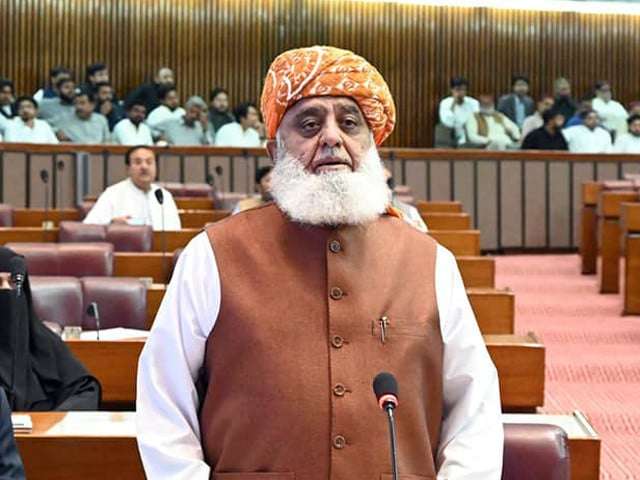Introduction
Maulana Fazlur Rehman, the leader of Jamiat Ulema-e-Islam-Fazl (JUI-F), has announced his strong opposition to any amendments to the Madrassa Registration Bill, which he claims has already become an Act despite ongoing controversies. Addressing the National Assembly on Tuesday, Rehman emphasized that the bill has passed through the legislative process and should be recognized as law. However, the issue remains unresolved due to the President’s objections and delays in the gazette notification.
In this article, we explore the political and legal implications of the Madrassa Registration Bill, the statements from various political figures, and the ongoing struggle for recognition of religious educational institutions.
The Madrassa Registration Bill: Legal Status and Controversies
What is the Madrassa Registration Bill?
The Madrassa Registration Bill is a proposed piece of legislation that aims to regulate religious schools (madrassas) in Pakistan. The bill outlines provisions for the registration of these institutions, ensuring they comply with the law and are subject to monitoring by relevant authorities. Despite its passage through both houses of parliament, the bill has faced delays in its implementation due to objections raised by the President of Pakistan.
The JUI-F’s Firm Stance on the Bill
Maulana Fazlur Rehman and the JUI-F have consistently maintained that the Madrassa Registration Bill has already become an Act. According to Rehman, the bill was signed off by the National Assembly Speaker after addressing the President’s objections, which he claimed were primarily related to technical issues.
Rehman strongly asserted that, legally, the bill is already an Act and any attempt to present it again in Parliament would be a violation of the constitution. He referenced a legal precedent set by former President Arif Alvi, who did not sign a bill but allowed it to become law automatically after 10 days, as stipulated by the constitution. Rehman stated that after the 10-day period, the President no longer holds the power to prevent the passage of the bill.
The Importance of the Gazette Notification
While the bill has been passed, the lack of an official gazette notification has left it in a state of limbo. This delay is a significant point of contention between the government and the JUI-F. According to Rehman, the absence of the notification is the only remaining issue preventing the Madrassa Registration Bill from being fully recognized as law. He stressed that the bill should be implemented immediately to avoid further controversy.
JUI-F’s Concerns Over Government Actions
Rehman criticized the government’s efforts to regulate religious schools, accusing it of undermining the rights and privileges of Parliament. He argued that madrassas have operated legally for over two decades without interference from the government. The JUI-F leader also dismissed the government’s attempts to divide madrassas into “religious” and “modern” categories, pointing out that students from these institutions have performed well in national exams.
The party also voiced concerns about the government’s efforts to interfere with the curriculum of religious schools, which Rehman claimed was an attempt to undermine the credibility of religious education. He asserted that regardless of the registration process, madrassas will continue to operate as they have in the past.
Taking the Issue to the Streets
In a dramatic move, Rehman warned that if the government’s stance on the Madrassa Registration Bill continues to be ignored, the JUI-F will take the issue to the streets. Rehman emphasized that his party is prepared to resolve the matter outside of Parliament if necessary. This bold statement has sparked concerns about potential protests and political instability surrounding the issue.
Government’s Position on the Bill
The Law Minister’s Statement
In response to Rehman’s remarks, Federal Law Minister Azam Nazeer Tarar reiterated the constitutional requirement that no legislation is complete without the President’s signature. He stressed that the President plays an integral role in the legislative process and that the bill cannot be considered law without his formal approval.
Tarar explained that under Article 75 of the Constitution, the President is given ten days to either approve the bill or send it back to Parliament for reconsideration. The bill in question was returned by the President with eight objections, and the government has been working to address these concerns. The law minister assured that the federal government is committed to fulfilling its responsibilities and ensuring law and order throughout the country.
Presidential Objections to the Bill
The President’s objections to the Madrassa Registration Bill were centered around legal and procedural matters. While the bill was passed by both houses of Parliament, it remained stalled due to these objections. As a result, the bill is in limbo, with no clear resolution in sight.
The JUI-F, however, contends that these objections have been addressed, and the bill should be recognized as an Act. The lack of a formal gazette notification is seen as the final hurdle to the bill’s implementation.
Legal Precedents and Constitutional Interpretation
Rehman’s reference to former President Arif Alvi’s decision not to sign a bill is grounded in constitutional law. According to Article 75 of the Constitution of Pakistan, if the President does not sign a bill within 10 days, it automatically becomes an Act. This legal precedent has been cited by Rehman to support his claim that the Madrassa Registration Bill is already law.
The Role of the President in Pakistan’s Political System
The President’s Constitutional Role
The President of Pakistan, as outlined in the 1973 Constitution, holds a significant but largely ceremonial role in the legislative process. The President’s responsibilities include approving or rejecting bills passed by the Parliament. However, in cases where the President fails to sign a bill within the prescribed period, the bill automatically becomes law, as Rehman pointed out.
Despite this, the President retains the right to send bills back to Parliament for reconsideration. The ongoing standoff over the Madrassa Registration Bill highlights the tensions between the executive, legislature, and the head of state in Pakistan’s political system.
The Broader Impact of the Madrassa Registration Bill
The Political and Social Implications
The Madrassa Registration Bill is not just a legal issue; it has become a flashpoint for political and social debate in Pakistan. The bill has sparked discussions on the role of religious schools in the country, the government’s efforts to regulate them, and the tension between religious and secular education.
Supporters of the bill argue that it will bring madrassas in line with national education standards and ensure that they operate within the legal framework. However, critics, particularly from religious parties like JUI-F, see the bill as an attempt to interfere with religious education and undermine the autonomy of religious institutions.
Public Opinion and Religious Education
The issue of madrassa registration has also highlighted the growing divide between secular and religious segments of Pakistani society. While secular-minded individuals and groups see the regulation of madrassas as necessary for the country’s development, religious groups view it as an infringement on their rights to educate students according to Islamic principles.
The JUI-F’s stance on the Madrassa Registration Bill has resonated with many religious groups, who see the bill as an attempt to marginalize religious education. On the other hand, the government argues that the bill is necessary to bring transparency and accountability to the operation of madrassas.
Conclusion
The Madrassa Registration Bill remains a highly contentious issue in Pakistan, with political, legal, and social implications. While the bill has passed through the legislative process, its implementation has been stalled due to objections from the President and delays in issuing the gazette notification. Maulana Fazlur Rehman and the JUI-F have made it clear that they will not accept any amendments to the bill and are prepared to take the issue to the streets if necessary.
The government, on the other hand, maintains that the President’s objections must be addressed before the bill can become law. The political standoff continues to highlight the tensions between religious and secular forces in Pakistan, as well as the complex role of the President in the legislative process.
FAQs
- What is the Madrassa Registration Bill? The Madrassa Registration Bill aims to regulate religious schools (madrassas) in Pakistan, ensuring they comply with legal standards and are monitored by authorities.
- Why is Maulana Fazlur Rehman opposed to amendments to the bill? Rehman believes that the bill has already passed through the legislative process and should be recognized as law. He views any amendments as a violation of the constitution.
- What objections did the President raise regarding the bill? The President returned the bill with eight objections, primarily related to legal and procedural matters, which are yet to be fully addressed.
- What is the significance of the gazette notification? The gazette notification is the formal publication of a law, and its absence has kept the Madrassa Registration Bill from being fully implemented.
- How is the issue of madrassa registration affecting Pakistani politics? The debate over the Madrassa Registration Bill has become a significant political issue, highlighting the tensions between religious and secular segments of society in Pakistan.



